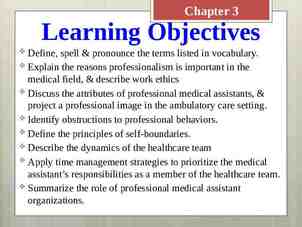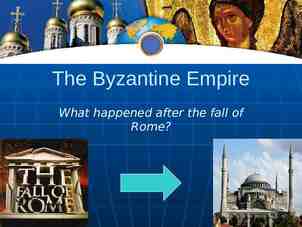The Illinois Governmental and Governmental Employees Tort Immunity
70 Slides1.12 MB

The Illinois Governmental and Governmental Employees Tort Immunity Act 745 ILCS 10

The Purpose of the Act To protect local public entities and public employees from liability arising from the operation of government. 745 ILCS 10/1-101.1(a) This law provides local government with protection from some, but not all, lawsuits. Applies only to actions in tort, which are claims seeking monetary damages for injuries to person or property.

Claims not covered by the Act Lawsuits that seek relief other than money, i.e. injunctions, declaratory judgment, mandamus Contracts Operation as a common carrier Claims pursuant to the Workers' Compensation Act Claims pursuant to the Workers' Occupational Diseases Act Federal Civil Rights Claims

Application of the Act is very fact specific. This presentation is an introduction to the statute only and is not to be taken as legal advice. There are multiple judicial districts and for some issues they have different law. There are new cases being decided everyday. The Act itself is amended from time to time. There are many other statutes that apply to local government, so what is discussed is not exhaustive.

Other Law Counties Code Local Government Act Illinois Constitution

There are many other immunities under 745 ILCS 5: County Engineer and Highway Superintendent Liability Act, Public and Appellate Defender Immunity Act Baseball Facility Liability Act, Blood and Organ Transaction Liability Act, Bowling Center Act Equine Activity Liability Act Good Samaritan, Good Samaritan Food Donor Act, Good Samaritan Medical Equipment Donor Act Recreational Use of Land and Water Areas Act Roller Skating Rink Safety Act, Snow and Ice Removal Act, Sports Volunteer Immunity Act, Hockey Facility Liability Act

Tort Judgment Tort judgment means a final judgment founded on an injury, as defined by this Act, proximately caused by a negligent or wrongful act or omission of a local public entity or an employee of a local public entity while acting within the scope of his employment. 745 ILCS 10/9-101(d)

Injury "Injury" means death, injury to a person, or damage to or loss of property. It includes any other injury that a person may suffer to his person, reputation, character or estate which does not result from circumstances in which a privilege is otherwise conferred by law and which is of such a nature that it would be actionable if inflicted by a private person. 745 ILCS 10/1-204

Counties have to pay Claims And Judgments. A local public entity is empowered and directed to pay any tort judgment or settlement for compensatory damages (and may pay any associated attorney's fees and costs) for which it or an employee while acting within the scope of his employment is liable in the manner provided in this Article. 745 ILCS 10/9-102

Local Public Entities A county, township, municipality, municipal corporation, school district, school board, educational service region, regional board of school trustees, trustees of schools of townships, treasurers of schools of townships, community college district, community college board, forest preserve district, park district, fire protection district, sanitary district, museum district, emergency telephone system board, and all other local governmental bodies. "Local public entity" also includes library systems and any intergovernmental agency or similar entity formed pursuant to the Constitution of the State of Illinois or the Intergovernmental Cooperation Act as well as any not-for-profit corporation organized for the purpose of conducting public business. 745 ILCS 10/1-206

Employee A present or former officer, member of a board, commission or committee, agent, volunteer, servant or employee, whether or not compensated, but does not include an independent contractor. 745 ILCS 10/1-202

Public Employee "Public Employee" means an employee of a local public entity. 745 ILCS 10/1-207

State of Illinois The Act does not cover the State of Illinois, or State of Illinois Employees State Lawsuit Immunity Act, 745 ILCS 5.

Punitive Damages Never Allowed Notwithstanding any other provision of law, a local public entity is not liable to pay punitive or exemplary damages in any action brought directly or indirectly against it by the injured party or a third party. In addition, no public official is liable to pay punitive or exemplary damages in any action arising out of an act or omission made by the public official while serving in an official executive, legislative, quasi-legislative or quasijudicial capacity, brought directly or indirectly against him by the injured party or a third party. 745 ILCS 10/2102

Adopting and Enforcing Laws A local public entity is not liable for an injury caused by adopting or failing to adopt an enactment or by failing to enforce any law. 745 ILCS 10/2-103

Permits A local public entity is not liable for an injury caused by the issuance, denial, suspension or revocation of, or by the failure or refusal to issue, deny, suspend or revoke, any permit, license, certificate, approval, order or similar authorization where the entity or its employee is authorized by enactment to determine whether or not such authorization should be issued, denied, suspended or revoked. 745 ILCS 10/2-104

Inspections A local public entity is not liable for injury caused by its failure to make an inspection, or by reason of making an inadequate or negligent inspection, of any property, other than its own, to determine whether the property complies with or violates any enactment or contains or constitutes a hazard to health or safety. 745 ILCS 10/2105

Oral Promise or Misrepresentation of Employee A local public entity is not liable for an injury caused by an oral promise or misrepresentation of its employee, whether or not such promise or misrepresentation is negligent or intentional. 745 ILCS 10/2-106

Liability for Employee Misinformation A local public entity is not liable for injury caused by any action of its employees that is libelous or slanderous or for the provision of information either orally, in writing, by computer or any other electronic transmission, or in a book or other form of library material. 745 ILCS 10/2-107

Granting Welfare A local public entity is not liable for any injury caused by the granting, or failure to grant, public welfare goods or monies. 745 ILCS 10/2-108 Public Aid Committees that hear General Assistance Appeals when Townships cut off aid.

Employee Not Liable A local public entity is not liable for an injury resulting from an act or omission of its employee where the employee is not liable. 745 ILCS 10/2-109

Discretion Except as otherwise provided by Statute, a public employee serving in a position involving the determination of policy or the exercise of discretion is not liable for an injury resulting from his act or omission in determining policy when acting in the exercise of such discretion even though abused. 745 ILCS 10/2-201

Enforcement of Law A public employee is not liable for his act or omission in the execution or enforcement of any law unless such act or omission constitutes willful and wanton conduct. 745 ILCS 10/2-202 Police chases, also involves any other enforcement of law. Jackson v. Kane County, 2021 IL App (2d) 210153

Constitutional Enactment If a public employee acts in good faith, without malice, and under the apparent authority of an enactment that is unconstitutional, invalid or inapplicable, he is not liable for any injury caused thereby except to the extent that he would have been liable had the enactment been constitutional, valid and applicable. 745 ILCS 10/2203

Liability for the Actions of Others Except as otherwise provided by statute, a public employee, as such and acting within the scope of his employment, is not liable for an injury caused by the act or omission of another person. 745 ILCS 10/2-204 Supervisors not responsible for actions of those they supervise.

Adoption or Enforcement of Law A public employee is not liable for an injury caused by his adoption of, or failure to adopt, an enactment, or by his failure to enforce any law. 745 ILCS 10/2-205

Permits A public employee is not liable for an injury caused by his issuance, denial, suspension or revocation of or by his failure or refusal to issue, deny, suspend or revoke, any permit, license, certificate, approval, order or similar authorization where he is authorized by enactment to determine whether or not such authorization should be issued, denied, suspended or revoked. 745 ILCS 10/2-206

Inspections A public employee is not liable for an injury caused by his failure to make an inspection, or by reason of making an inadequate or negligent inspection, of any property, other than that of the local public entity employing him, for the purpose of determining whether the property complies with or violates any enactment or contains or constitutes a hazard to health or safety. 745 ILCS 10/2-207

Instituting Administrative Proceeding A public employee is not liable for injury caused by his instituting or prosecuting any judicial or administrative proceeding within the scope of his employment, unless he acts maliciously and without probable cause. 745 ILCS 10/2-208

Entry on Property A public employee is not liable for an injury arising out of his entry upon any property where such entry is expressly or impliedly authorized by law. 745 ILCS 10/2-209 Counties have to be careful about unlawful entry, this applies when authority to enter is clear.

Employee Misrepresentation A public employee acting in the scope of his employment is not liable for an injury caused by his negligent misrepresentation or the provision of information either orally, in writing, by computer or any other electronic transmission, or in a book or other form of library material. 745 ILCS 10/2-210

Joint Efforts The provisions which define or limit the liability of a public employee in terms of his doing of an act or of his failure to act apply to public employees who function jointly, in conjunction or in collaboration with other public employees as well as to those who function singly. 745 ILCS 10/2-212

Discretionary Acts A public employee is not liable to pay punitive or exemplary damages in actions brought against the employee based on an injury allegedly arising out of an act or omission occurring within the scope of employment of such an employee serving in a position involving the determination of policy or the exercise of discretion when the injury is the result of an act or omission occurring in the performance of any legislative, quasilegislative or quasi-judicial function, even though abused. 745 ILCS 10/2-213

Indemnification Of Public Employees Nothing .relieves a local public entity of its duty to indemnify or insure its employees as provided in . in Section 5-1002 of the Counties Code, and in Section 22 of "An Act in relation to the creation and management of forest preserve districts in counties having a population of less than 3,000,000. 745 ILCS 10/2301

Indemnification of Employees If any claim or action is instituted against an employee of a local public entity based on an injury allegedly arising out of an act or omission occurring within the scope of his employment as such employee, the entity may elect to do any one or more of the following: (a) appear and defend against the claim or action; (b) indemnify the employee or former employee for his court costs or reasonable attorney's fees, or both, incurred in the defense of such claim or action; (c) pay, or indemnify the employee or former employee for a judgment based on such claim or action; or (d) pay, or indemnify the employee or former employee for, a compromise or settlement of such a claim or action. 745 ILCS 10/2-302

Criminal Charges If an employee of a local public entity is a defendant in any criminal action arising out of or incidental to the performance of his or her duties, the local public entity shall not provide representation for the employee in that criminal action. However, the local public entity may reimburse the employee for reasonable defense costs only if the criminal action was instituted against the employee based upon an act or omission of that employee arising out of and directly related to the lawful exercise of his or her official duty or under color of his or her authority and that action is dismissed or results in a final disposition in favor of that employee. Nothing in this Act shall be construed to prohibit a local public entity from providing representation to an employee who is a witness in a criminal matter arising out of that employee's employment with the local government entity. 745 ILCS 10/2-302

Can not pay punitive damages on behalf of an employee It is hereby declared to be the public policy of this State, however, that no local public entity may elect to indemnify an employee for any portion of a judgment representing an award of punitive or exemplary damages. 745 ILCS 10/2-302

Other Insurance The provisions of indemnification, as set forth above, shall be justifiably refused by the local public entity if it is determined that there exists a current insurance policy or a contract, by virtue of which the employee is entitled to a defense of the action in question. 745 ILCS 10/2-302

Immunity For Injury Occurring In The Use Of Public Property “Property of a local public entity" and "public property" mean real or personal property owned or leased by a local public entity, but do not include easements, encroachments and other property that are located on its property but that it does not own, possess or lease. 745 ILCS 10/3-101

Notice Except as otherwise provided in this Article, a local public entity has the duty to exercise ordinary care to maintain its property in a reasonably safe condition for the use in the exercise of ordinary care of people whom the entity intended and permitted to use the property in a manner in which and at such times as it was reasonably foreseeable that it would be used, and shall not be liable for injury unless it is proven that it has actual or constructive notice of the existence of such a condition that is not reasonably safe in reasonably adequate time prior to an injury to have taken measures to remedy or protect against such condition. 745 ILCS 10/3-102

Constructive Notice A public entity does not have constructive notice of a condition of its property that is not reasonably safe within the meaning of Section 3-102(a) if it establishes either: (1) The existence of the condition and its character of not being reasonably safe would not have been discovered by an inspection system that was reasonably adequate considering the practicability and cost of inspection weighed against the likelihood and magnitude of the potential danger to which failure to inspect would give rise to inform the public entity whether the property was safe for the use or uses for which the public entity used or intended others to use the public property and for uses that the public entity actually knew others were making of the public property or adjacent property; or (2) The public entity maintained and operated such an inspection system with due care and did not discover the condition.

Traffic Control Devices Neither a local public entity nor a public employee is liable under this Act for an injury caused by the failure to initially provide regulatory traffic control devices, stop signs, yield right-of-way signs, speed restriction signs, distinctive roadway markings or any other traffic regulating or warning sign, device or marking, signs, overhead lights, traffic separating or restraining devices or barriers. 745 ILCS 10/3-104

Effects of Weather Neither a local public entity nor a public employee is liable for an injury caused by the effect of weather conditions as such on the use of streets, highways, alleys, sidewalks or other public ways, or places, or the ways adjoining any of the foregoing, or the signals, signs, markings, traffic or pedestrian control devices, equipment or structures on or near any of the foregoing or the ways adjoining any of the foregoing. For the purpose of this section, the effect of weather conditions as such includes but is not limited to the effect of wind, rain, flood, hail, ice or snow but does not include physical damage to or deterioration of streets, highways, alleys, sidewalks, or other public ways or place or the ways adjoining any of the foregoing, or the signals, signs, markings, traffic or pedestrian control devices, equipment or structures on or near any of the foregoing or the ways adjoining any of the foregoing resulting from weather conditions. 745 ILCS 10/3-105(a)

Failure to Upgrade Without implied limitation, neither a local public entity nor a public employee is liable for any injury caused by the failure of a local public entity or a public employee to upgrade any existing street, highway, alley, sidewalk or other public way or place, or the ways adjoining any of the foregoing, or the signals, signs, markings, traffic or pedestrian control devices, equipment or structures on or near such street, highway, alley, sidewalk or other public way or place, or the ways adjoining any of the foregoing. 745 ILCS 10/3-105(b)

Recreational Properties Neither a local public entity nor a public employee is liable for an injury where the liability is based on the existence of a condition of any public property intended or permitted to be used for recreational purposes, including but not limited to parks, playgrounds, open areas, buildings or other enclosed recreational facilities, unless such local entity or public employee is guilty of willful and wanton conduct proximately causing such injury. 745 ILCS 10/3-106

“Willful and Wanton Conduct” “Willful and wanton conduct” as used in this Act means a course of action which shows an actual or deliberate intention to cause harm or which, if not intentional, shows an utter indifference to or conscious disregard for the safety of others or their property. This definition shall apply in any case where a ‘willful and wanton’ exception is incorporated into any immunity under this Act.” 745 ILCS 10/1-210

Access to Camping and Hunting Areas Neither a local public entity nor a public employee is liable for an injury caused by a condition of: (a) Any road which provides access to fishing, hunting, or primitive camping, recreational, or scenic areas and which is not a (1) city, town or village street (2) county, state or federal highway or (3) a township or other road district highway. (b) Any hiking, riding, fishing or hunting trail. 745 ILCS 10/3-107

Supervisory Liability (a) Except as otherwise provided in this Act, neither a local public entity nor a public employee who undertakes to supervise an activity on or the use of any public property is liable for an injury unless the local public entity or public employee is guilty of willful and wanton conduct in its supervision proximately causing such injury. (b) Except as otherwise provided in this Act, neither a local public entity nor a public employee is liable for an injury caused by a failure to supervise an activity on or the use of any public property unless the employee or the local public entity has a duty to provide supervision imposed by common law, statute, ordinance, code or regulation and the local public entity or public employee is guilty of willful and wanton conduct in its failure to provide supervision proximately causing such injury. 745 ILCS 10/3-108

Hazardous Recreational Activity Neither a local public entity nor a public employee is liable to any person who participates in a hazardous recreational activity, including any person who assists the participant, or to any spectator who knew or reasonably should have known that the hazardous recreational activity created a substantial risk of injury to himself or herself and was voluntarily in the place of risk, or having the ability to do so failed to leave, for any damage or injury to property or persons arising out of that hazardous recreational activity. 745 ILCS 10/3-109

What is a hazardous activity? Swimming and water contact activities, diving, animal racing, archery, bicycle racing or jumping, off-trail bicycling, boat racing, crosscountry and downhill skiing, sledding, tobogganing equine activities, hang gliding, kayaking, motorized vehicle racing, off-road motorcycling or four-wheel driving of any kind, orienteering, pistol and rifle shooting, rock climbing, rocketeering, rodeo, spelunking, sky diving, sport parachuting, body contact sports, surfing, trampolining, tree climbing, tree rope swinging where the person or persons furnished their own rope, water skiing, white water rafting, and wind surfing.

Liability with Hazardous Activities (c) Notwithstanding the provisions of subsection (a), this Section does not limit liability which would otherwise exist for any of the following: (1) Failure of the local public entity or public employee to guard or warn of a dangerous condition of which it has actual or constructive notice and of which the participant does not have nor can be reasonably expected to have had notice. (2) An act of willful and wanton conduct by a public entity or a public employee which is a proximate cause of the injury.

Waterways Neither a local public entity nor a public employee is liable for any injury occurring on, in, or adjacent to any waterway, lake, pond, river or stream not owned, supervised, maintained, operated, managed or controlled by the local public entity. 745 ILCS 10/3-110

Adequate Police Protection Neither a local public entity nor a public employee is liable for failure to establish a police department or otherwise provide police protection service or, if police protection service is provided, for failure to provide adequate police protection or service, failure to prevent the commission of crimes, failure to detect or solve crimes, and failure to identify or apprehend criminals. 745 ILCS 10/4-102

Jails Neither a local public entity nor a public employee is liable for failure to provide a jail, detention or correctional facility, or if such facility is provided, for failure to provide sufficient equipment, personnel, supervision or facilities therein. Nothing in this Section requires the periodic inspection of prisoners. 745 ILCS 10/4-103

Parole or Escaping Prisoner Neither a local public entity nor a public employee is liable for: (a) Any injury resulting from determining to parole or release a prisoner, to revoke his or her parole or release, or the terms and conditions of his or her parole or release. (b) Any injury inflicted by an escaped or escaping prisoner. 745 ILCS 10/4-106

Failure to Arrest Neither a local public entity nor a public employee is liable for an injury caused by the failure to make an arrest or by releasing a person in custody. 745 ILCS 10/4-107

Controlling the Communication of Disease (a) Neither a local public entity nor a public employee is liable for an injury resulting from the policy decision to perform or not to perform any act to promote the public health of the community by preventing disease or controlling the communication of disease within the community if such decision was the result of the exercise of discretion vested in the local public entity or the public employee, whether or not such discretion was abused. (b) Neither a local public entity nor a public employee is liable for an injury caused by an act or omission in carrying out with due care a decision described in subdivision (a). 745 ILCS 10/6-104

Mental Examination Neither a local public entity nor a public employee acting within the scope of his employment is liable for injury caused by the failure to make a physical or mental examination, or to make an adequate physical or mental examination of any person for the purpose of determining whether such person has a disease or physical or mental condition that would constitute a hazard to the health or safety of himself or others. 745 ILCS 10/6-105

Diagnosis of Mental Illness Neither a local public entity nor a public employee acting within the scope of his employment is liable for injury resulting from diagnosing or failing to diagnose that a person is afflicted with mental or physical illness or addiction or from failing to prescribe for mental or physical illness or addiction. Neither a local public entity nor a public employee acting within the scope of his employment is liable for administering with due care the treatment prescribed for mental or physical illness or addiction.

Medical Treatment Nothing in this section exonerates a public employee who has undertaken to prescribe for mental or physical illness or addiction from liability for injury proximately caused by his negligence or by his wrongful act in so prescribing or exonerates a local public entity whose employee, while acting in the scope of his employment, so causes such an injury. Nothing in this section exonerates a public employee from liability for injury proximately caused by his negligent or wrongful act or omission in administering any treatment prescribed for mental or physical illness or addiction or exonerates a local public entity whose employee, while acting in the scope of his employment, so causes such an injury. 745 ILCS 10/6-106 No malpractice once treatment begins.

Confinement for Mental Health and Addiction Treatment (a) Neither a local public entity nor a public employee acting within the scope of his employment is liable for any injury resulting from determining in accordance with any applicable enactment: (1) Whether to confine a person for mental illness or addiction. (2) The terms and conditions of confinement for mental illness or addiction in a medical facility operated or maintained by a local public entity. (3) Whether to parole or release a person from confinement for mental illness or addiction in a medical facility operated or maintained by a local public entity. (b) Nothing in this Section exonerates a public employee from liability for false arrest or false imprisonment. 745 ILCS 10/6-107

Escaped Mental Patient Neither a local public entity nor a public employee is liable for an injury caused by or to an escaping or escaped mental patient. 745 ILCS 10/6-108

Admission to Medical Facility Neither a local public entity nor a public employee acting in the scope of his employment is liable for an injury resulting from the failure to admit a person to a medical facility operated or maintained by a local public entity. 745 ILCS 10/6-109

Agreements with other Entities When permitted by law to transfer any of its functions or services to, to lease its property to or to perform any function, service or act with or for any other local public entity or employee thereof by agreement with such other local public entity, a local public entity may agree with the other entity as to the manner in which liability for an injury resulting from such function, service or act is to be allocated or shared. Such agreement may be expressed by resolution, contract, lease, ordinance or in any other manner provided by law. 745 ILCS 10/7-101 As part of any agreement under this Article, the local public entities may provide for contribution or indemnification by any or all of the local public entities that are parties to the agreement upon any liability arising out of the performance of the agreement. 745 ILCS 10/7-102

Can’t Completely Waive Liability This Article applies to any agreement between local public entities whether entered into before or after the effective date of this Act. Nothing in this Article affects the right of recovery of a person injured by a local public entity or by its employee. 745 ILCS 10/7-103

Statute of Limitations No civil action other than an action described in subsection (b) may be commenced in any court against a local entity or any of its employees for any injury unless it is commenced within one year from the date that the injury was received or the cause of action accrued. No action for damages for injury or death against any local public entity or public employee, whether based upon tort, or breach of contract, or otherwise, arising out of patient care shall be brought more than 2 years after the date on which the claimant knew, or through the use of reasonable diligence should have known, or received notice in writing of the existence of the injury or death for which damages are sought in the action, whichever of those dates occurs first, but in no event shall such an action be brought more than 4 years after the date on which occurred the act or omission or occurrence alleged in the action to have been the cause of the injury or death.

Settlement of Lawsuits A local public entity is empowered and directed to pay any tort judgment or settlement for compensatory damages (and may pay any associated attorney's fees and costs) for which it or an employee while acting within the scope of his employment is liable in the manner provided in this Article. A local public entity may make payments to settle or compromise a claim or action which has been or might be filed or instituted against it when the governing body or person vested by law or ordinance with authority to make over-all policy decisions for such entity considers it advisable to enter into such a settlement or compromise. 745 ILCS 10/9-102

Insurance Counties may purchase insurance to cover these losses, or participate in an insurance risk pool. Counties may also self-insure against these losses. 745 ILCS 10/9-103

Settlement Agreements If there is an unreasonable financial hardship, determined by a hearing in Court, a County can petition to pay the judgment in installments. A County can also voluntarily enter into settlement agreements. 745 ILCS 10/9-104

Questions?






